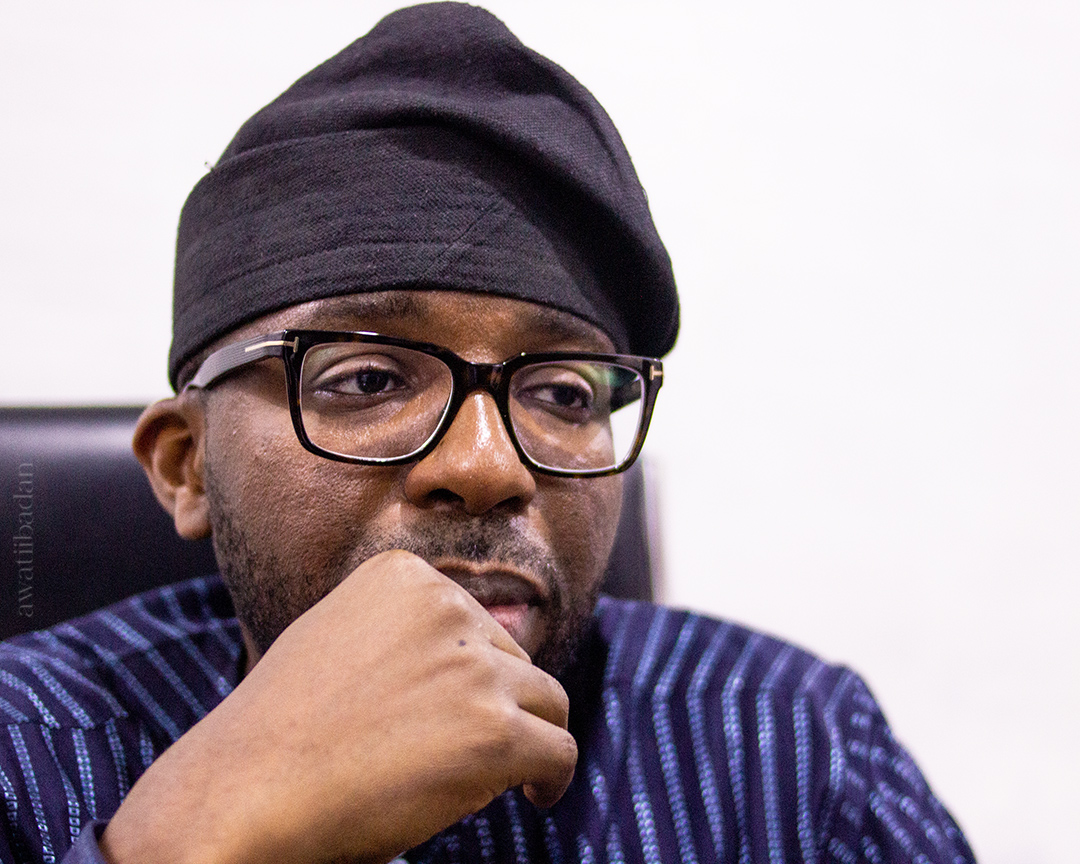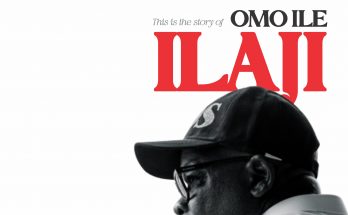
I was age 13 when – for the first time – I really thought about my future. What spurred the thinking? I was moving from JS3 to SS1 and I had to decide whether it would be the Science class or the Arts/Commercial class. My big sister was (and still is) a medical doctor and she was one of my role models at the time so I also wanted to be a doctor until the day I saw someone bleeding profusely and I couldn’t stand the sight of the blood. Medicine was out, what was next to medicine? Pharmacy, I mulled over it but there was a problem – I didn’t like the smell of drugs. In the end, I struck pharmacy out too.
I remember praying to God that I did not want to make a wrong move in life and it was in that moment that I got a strange inkling that I was going to be in government. It came as a random thought and it left me wondering – ‘who is government?’ ‘What do they do there?’ It had been a random thought but it was strong enough to make me choose the Arts class. I remember my mom expressing her reservation about my choice: “you’re brilliant, Seyi, you should be in the science class,” she’d said. When I insisted on the Arts, she asked me to convince her on my choice.
It was then that I got curious about the people in government across the world whose names resounded with me. I wanted to know more about them and as I dug, I saw an emerging pattern – many of the heavyweight people in government who made giant strides studied law – Obafemi Awolowo, Bola Ige, Abraham Lincoln, Bill Clinton. I went back to my mom and said:
“Mommy, I want to be a lawyer.”
“Ehn-ehn, good! Lawyer naa da – being a lawyer is good.” She replied.
After secondary school at King’s College Lagos, I went for my A-levels at Lambeth College in the UK. For my A-levels, I chose law. I made enquiries and I realized I could choose Politics alongside, so I did. I studied British politics and I also studied business. All that was me following the little spark in my heart. I had no blueprint or a clue of how I’d actualize the dream, I was just taking the steps as they seemed right to me at the time.
Going to the University of Birmingham to study law from Lambeth, I had to choose a branch of law – I knew there was constitutional law, human rights law and all that. I had conversations in my head. “Seyi, you will need money if you want to do politics in Nigeria,” I thought to myself, “you will need to make money first so find which law will give you plenty money.” I concluded that with a good Commercial law practice I could make money in the UK so I specialized in Commercial law.
I mapped out my plan: study commercial law, ignore the barrister-line of law practice and focus on being an excellent Commercial solicitor in the UK; work and earn money till my 40s then return to Nigeria and get into politics. I had done a mental calculation of how much I’d have saved by the time I was in my 40s and so I was convinced that money wouldn’t be a problem. I graduated from Birmingham as one of the few students with a Second-Class Upper degree and immediately after, one of the top 10 law firms in the UK offered me a job. That, in itself, was a big deal.
The way things work in the UK is this, law practice is divided into two – solicitorship and litigation/advocacy and, unlike in Nigeria, these two aspects of law practice did not mix. You were either one or the other. If you were going down the solicitor route, you’d have got at least a two-year working contract before you go to the law school. That meant that if you were going to law school in 2007, you must have secured a job in 2005. The law firm I had signed a contract with wanted us to go to College of Law or BPP, these were the two topmost law schools in the UK. I chose the BPP and when I was done, I graduated with a distinction.
Everything was going as planned and I was certain nothing could stop the dream – I had no idea that the valley season of my life was just about to begin.




By the time we got to 2015, the elections were over and he had been re-elected, everyone left on May 28. I resumed work immediately after the Swearing-In ceremony on May 29; I never left. By that time, I had become an integral part of the late governor’s work life.
By 2016, I could predict the governor so well – I could tell when he’d crack a joke or how he’d react to diverse incidents. Commissioners would bring files to me and ask for my honest opinions and I could categorically tell them that ‘Oga will query A-B-C.’ When they come out of his office, they’d say he queried exactly A-B-C.
I remember he would close from work and we’d drive round the city inspecting projects. During the rides, he would tell me very personal desires he had for the State. Even when we travelled out of the country and we saw “some impressive things, he’d say to me: “Seyi, why can’t Oyo State be like this? Why?!”
One part of the late governor that many never saw was the soft side of him. If you got close to him, you could see his soft side. Ajimobi was a great family man. He prioritized his family and he shed his skin so easily – at the office, he was governor and at home, he was a daddy. In the public glare, he wanted to be known to be strong and courageous.
There were times when I was with him in his house the night before and we’d talked and cracked jokes like father-son; and by morning when we are at work, he was in work mode with his face straightened up and his tone very official. I’d then begin to wonder if it was a different person I had spent the last evening with. He was a total choleric, straight-to-the-point man. These were some of things many people couldn’t fathom or even bear.
From the time I got into the political space in 2011, I made it a point of duty to always associate with my own. I am from Awe, a part of the nine communities/towns that form the AFIJIO constituency. They are Awe, Akinmorin, Fiditi, Ilora, Imini, Jobele, Iware, Ilu-Aje, Oluwatedo. My dad is a Chief in Awe and all through my primary school we used to go home to Awe for Christmas. By the time I got to secondary school, we really didn’t go home anymore unless there was a special occasion. Growing up, my dad used to tell us a lot of things about Awe. He’d tell us about Awe Football Club, Awe High School and things like that. That way, we were never out of tune with our roots.
Every time someone came from AFIJIO to see my principal, I always related with them. I made acquaintances with the members of the House of Assembly representing AFIJIO in the 2011-2015 era and in the 2015-2019 era. Also, I went home to speak at functions, encouraging the youths to get involved in politics and governance. You can say I came from being not-connected to my roots to being intentional about connecting with my root. In 2015, I bought a bus for the youths. At that time, everyone called me ‘barrister’. Thoughts began to cross my mind like, ‘Seyi, can you run for office – will you run for office?’ I got more involved politically. By the next year, people began to tell me that ‘barrister, you must run’ and I’d reply and say, ‘well, time would tell.’
By 2018, I prayed and was more certain that I was going to run for office and so I began to go home at least twice a month for familiarization, get-to-know-me purposes. I had meetings with the tailors, hairdressers, farmers – every class of people that I could reach; the idea was to make myself visible to them and to hear what they truly really desire from government. By the time I was done with this process, I had become fully certain that I would run, I had got the clearance from God that I should do this.
Right after getting God’s approval, next thing was informing my boss and getting his blessings. When I told him, he did not discourage me in any way. He only asked me:
“are you sure – this really sounds weird, you know?”
I told him affirmatively I was sure and the next thing he said was, “I’ll support you.”
As we approached 2019, he expected me to still show up. The elections into the State Houses of Assembly was originally for February before it was moved to March, 2019. I’d go for my campaigns and community outreaches and, even though I had resigned, I still reported back to the Governor’s Office till December 2018.”








Second article I’m reading on Awatiibadan. It’s inspiring! More power to your elbow, Sir Seyi Adisa. God bless the editors too! 💚